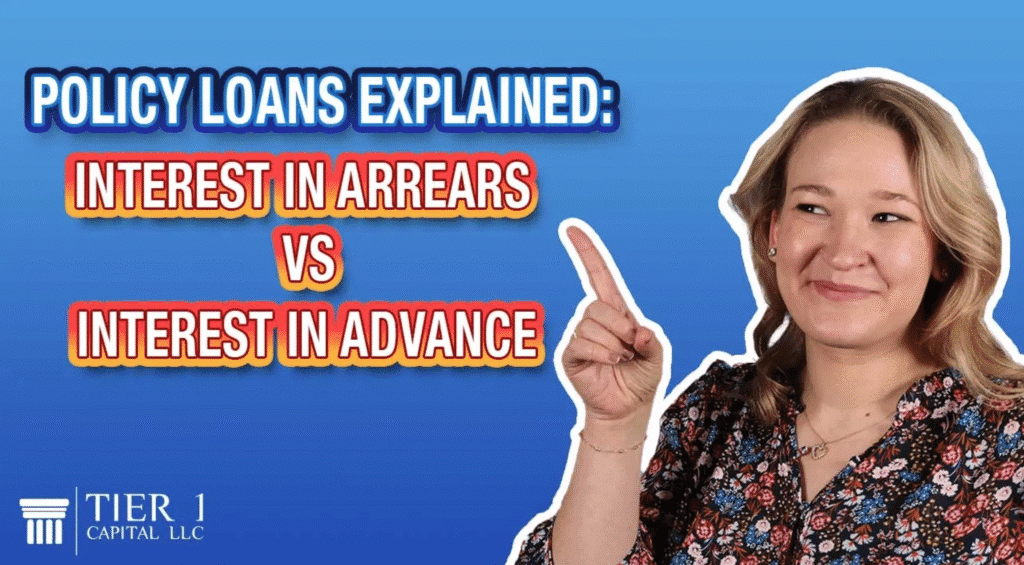
There’s no doubt that having an emergency fund is a good thing, especially as a small business owner. Today, we’re going to talk about how to build an emergency fund outside of the bank to put you in more control of your finances as times get tough.
According to a study by Intuit, 61% of small business owners suffer from either chronic or cyclical cash flow issues. And here’s the key what we’ve found working with small business owners for over 40 years is that all of these cash flow issues are self-inflicted. They emanate from how we’ve been trained to use our money. And the key here is, we have a process where we can show you how to reverse the flow of your cash. That is, you’ve been trained to have that cash flow move away from you now we just reverse the flow so the energy is flowing back to you.
And the best part about this condition being self-inflicted is that you are the one making the decisions that led you down one path. And by changing how you’re using your money, you’re able to lead yourself down another path, a path that gives you more access to capital so you’re not at the mercy of the bank anymore. Not only does it give you access to capital, it gives you independence from the bank. It also gives you the freedom to be in control of the repayment process because you’re borrowing against your own reserves rather than asking permission and getting approval from somebody else to tap into their reserves.
So using these whole life insurance policies designed for cash value accumulation is really taking a step to build up a private pool of capital that you have full liquidity, use, and control over that you’re able to use to self-finance in your business. So now, instead of making payments to the bank, you’re making payments to the insurance company and rebuilding that access to capital as time goes on.
That’s such a strong point because again, as you’re paying down your loan, you’re also simultaneously increasing your equity. So you really continue to keep this process and this momentum growing. The financial energy is incredible. And now that puts you at a distinct advantage against your competitors, against your peers and it also positions you for growth to be able to take advantage of opportunities.
And you know, there are a few things a business owner could use that capital for that I can think of. First, we have the emergency fund. If cash flow becomes tight and we need to cover monthly expenses, we could certainly tap into that cash value. Second, we have the ability to use that cash value to self-finance purchases. Whether it’s inventory you’re able to buy it at a discount or a large piece of equipment, you can tap into a life insurance policy loan. You’ll have much more control over, number one, whether you’re able to access the money, and number two, the repayment schedule that goes along with it. Third, if you want to expand your business maybe open a new location you’re able to use the life insurance policy loan to take advantage of those opportunities.
You know, all we’ve discussed so far in this blog post are the practical applications of the cash value. But you also have to realize the death benefit is important. Whether you purchase the policy for succession planning, exit planning, or key person retention planning, you’re now getting one dollar doing multiple duties. And that’s the way you beat recessions and inflation you get one dollar to perform multiple duties.
Let’s take a step way back here. Because when we talk about whole life insurance, people think about premiums. How would a business owner start funding a whole life insurance policy especially if they are cash flow pinched, don’t have access to capital on a monthly basis, and feel like they need that money to get out of their current situation?
That takes what Nelson Nash taught me: honest introspection. You have to really take a look at how you’re using your money. Because we’ve been trained to transfer control of our money and our cash flow unknowingly and unnecessarily. Those are the two key words: “unknowingly” means we don’t even realize it’s happening. We think it’s moving us forward, but it’s actually holding us back. “Unnecessarily” means you could stop doing it. And when you look at things with honest introspection, you’re able to discern whether or not it’s actually moving you forward. And if it isn’t, and you’re not in control, all of a sudden if you just stop those strategies or uses of money, now you’re in control. And that’s the key.
One of the things we’ve been trained to look at when evaluating how we use our money is interest rates. We’re trained to think, “How much is it going to cost me in interest?” and “How can I pay less interest?” And the thought becomes, “I don’t want to give up control of that money. I want to pay it off as soon as possible.” But a lot of times, by taking that step for example, putting $1,000 extra on a loan to save on long-term interest what you’re actually doing is giving up control of that $1,000 today. And that leaves you feeling pinched. So it doesn’t necessarily matter that you’re saving a few bucks on interest if it’s not giving you a feeling of financial freedom. The better question is: how could we use that $1,000 to move us forward today, meet current needs, and set up the business for a stronger future?
Ultimately, the bottom line is you have to be in control. Because if you’re not in control, somebody else is. Right?
So when you give that $1,000 to the bank, you no longer have liquidity, use, and control over that money the bank does. And if you want to get your hands on it, you have to go back and ask for permission. That’s not a great position to be in when you’re striving for financial freedom.
It’s funny, a lot of times when we’re sitting down with business owners talking about funding their succession, exit, or key person retention plan, they’ll say, “Well, we don’t have the cash flow for it.” I always tell them, “You probably do. But you have to make some changes in how you’re using your money.” And sometimes people take exception to that. We don’t mean it critically. We literally mean you’ve just been trained to use your money a certain way. If you unlearn those bad habits, all of a sudden, you can be in control.
What we’re really doing at the end of the day is moving money from one pocket to the next. Instead of giving that money to the bank, we’re just putting the money into a life insurance policy to build up a private reserve a pool of capital that you own and control, that you’re able to access to take advantage of opportunities, to move your business forward, and to get yourself out of a cash flow pinch instead of trying to save a couple of bucks on interest. So at the end of the day, the choice is simple: do you want to get out of debt as soon as possible and be cash poor, or do you want to build an emergency fund that you have full liquidity, use, and control over?
At the end of the day, there are only a few places where you can store that emergency fund.
You know, there are a lot of similarities between banks and insurance companies. Think about it—they’re both financial intermediaries. They take our money, invest it for profit, and stand in the middle guaranteeing us against loss. Both banks and insurance companies are insured by some form of government program. Banks are insured by the FDIC. Insurance companies are not but they are insured by each state’s insurance guarantee fund. For example, the FDIC insures your bank account up to $250,000. Here in Pennsylvania, the state guarantee fund insures your insurance account up to $250,000.
So there are a lot of similarities between banks and insurance companies. But there’s one key difference: how they’re allowed to reserve money. A bank is set up on a fractional reserve system, which means for the bank to guarantee your deposited dollar, they only have to set aside about 10 cents. Insurance companies operate on a 100% reserve requirement. That means if you have a dollar with the insurance company, they can only loan out that same dollar they can’t multiply it like a bank does. That makes your money much safer with an insurance company than a bank, because of how they’re regulated to reserve your funds.
If you’d like to learn more about how to build an emergency fund using a whole life policy designed for cash value accumulation that could also serve other benefits for your business, check out our website at www.tier1capital.com and click the “Schedule Your Free Strategy Session” today.
Thanks for reading, and remember it’s not how much money you make, it’s how much money you keep that really matters.




















